Ip Man 3 (2015): Unleashing the Wing Chun Legacy
When it comes to martial arts cinema, few names resonate as powerfully as Ip Man. By the time Ip Man 3 premiered in 2015, the franchise had already carved out a legendary status, blending breathtaking action with the quiet dignity of its titular hero. Directed by Wilson Yip and starring the incomparable Donnie Yen, this third installment takes the series to new emotional and physical heights. With a mix of heart-pounding fights, a deeply personal story, and a dash of historical flair, Ip Man 3 proves that even in a crowded genre, Ip Man’s Wing Chun mastery stands tall. Let’s step into the ring and explore this cinematic gem in all its glory.
The Heart of the Fight: Plot and Premise
Released on December 24, 2015, Ip Man 3 shifts its focus from the grand historical backdrop of its predecessors to a more intimate, character-driven tale. Set in 1959 Hong Kong, the film finds Ip Man (Donnie Yen) living a peaceful life with his wife, Cheung Wing-sing (Lynn Hung), and their young son, Ip Chun. But tranquility is short-lived. A ruthless property developer, Frank (Mike Tyson), backed by a gang of thugs led by Ma King-sang (Patrick Tam), threatens to take over the local school where Ip Man’s son studies. What begins as a fight to protect the community soon escalates into a personal battle as Ip Man confronts both external foes and a devastating family crisis.
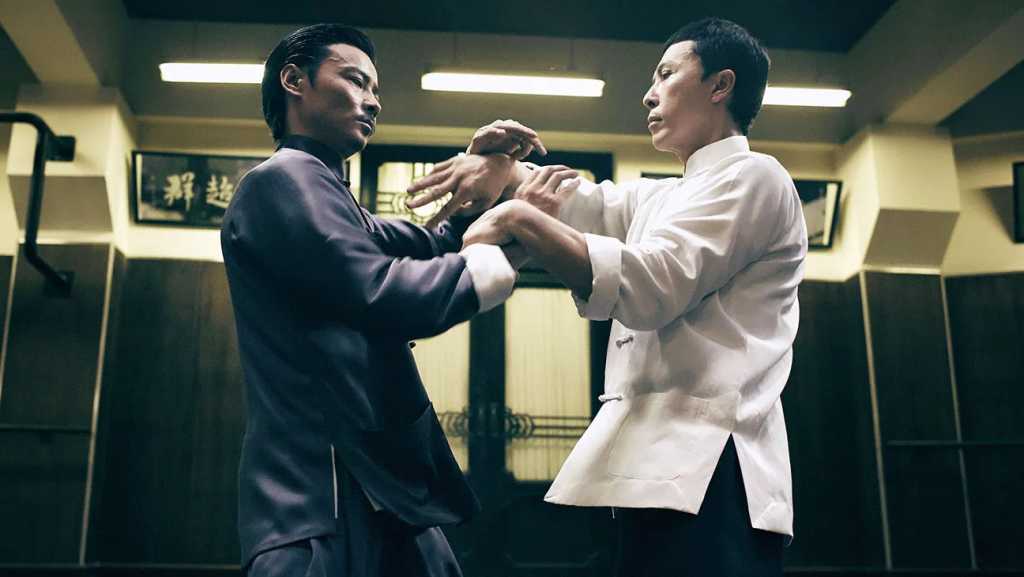
The plot weaves two central threads: Ip Man’s stand against Frank’s gang and his wife’s diagnosis with cancer, which forces him to confront his priorities as a husband and father. Alongside these struggles, a rival martial artist, Cheung Tin-chi (Max Zhang), emerges, challenging Ip Man’s reputation as the city’s Wing Chun master. The narrative builds to a climactic showdown that’s as much about honor and legacy as it is about fists and feet. While less tied to historical events than the first two films, Ip Man 3 grounds itself in the emotional stakes of its characters, making every punch feel personal.
The Masters at Work: Cast and Characters
Donnie Yen’s portrayal of Ip Man remains the soul of the franchise, and in Ip Man 3, he delivers a performance that’s both ferocious and tender. Yen captures Ip Man’s stoic grace, his lightning-fast Wing Chun moves, and—most poignantly—his quiet heartbreak as he faces his wife’s illness. It’s a testament to Yen’s skill that he can convey so much with a single glance or a subtle shift in stance. Lynn Hung, as Cheung Wing-sing, brings a gentle strength to the film, her chemistry with Yen anchoring the story’s emotional core. Their scenes together are the heartbeat of Ip Man 3, offering a rare glimpse of vulnerability in a genre often dominated by bravado.
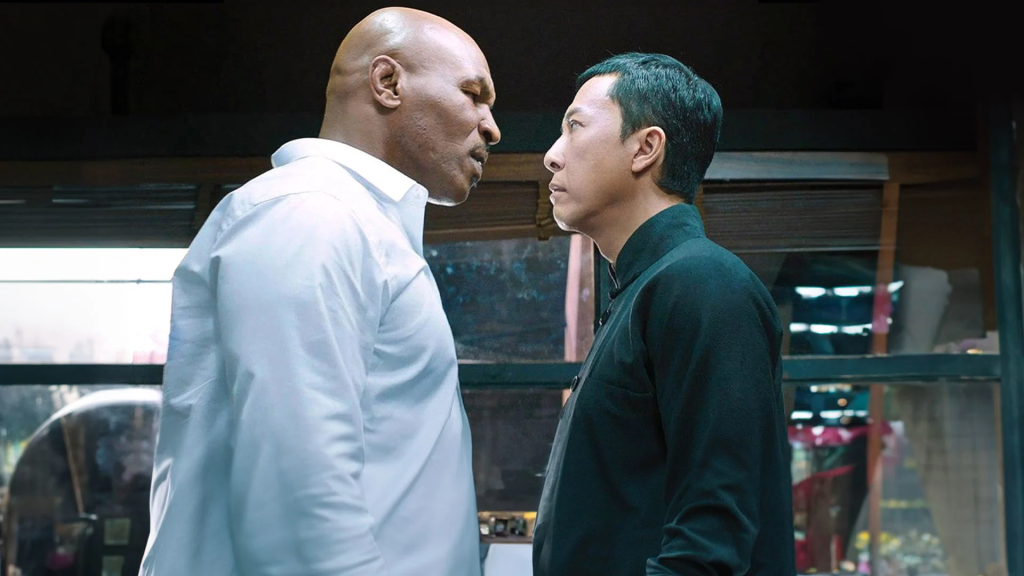
The antagonists add spice to the mix. Mike Tyson’s Frank is a hulking presence, his sheer physicality making their much-anticipated fight with Ip Man a clash of titans. Though his screen time is brief, Tyson’s charisma and raw power leave a lasting impression. Patrick Tam’s Ma King-sang, meanwhile, is a snarling, street-smart villain whose menace drives the early conflict. Max Zhang’s Cheung Tin-chi is the wildcard—a skilled fighter with a chip on his shoulder, whose rivalry with Ip Man culminates in one of the film’s most electrifying duels. Zhang’s athleticism and intensity make him a standout, hinting at the spin-off potential realized in Master Z: Ip Man Legacy (2018).
Supporting players like Danny Chan, who returns as a young Bruce Lee, add a playful nod to Ip Man’s legacy. Though brief, Chan’s scenes—complete with nunchaku twirls—pay homage to the real-life student who would carry Wing Chun to the world.
A Dance of Fists: Action and Choreography
If there’s one thing Ip Man 3 nails, it’s the action. Choreographed by the legendary Yuen Woo-ping, the fight scenes are a mesmerizing blend of precision, speed, and artistry. Wing Chun, with its close-quarters strikes and economy of movement, takes center stage, and Yen executes it with jaw-dropping finesse. The film opens with a flurry of action as Ip Man defends the school, dispatching thugs with effortless flair. But it’s the marquee battles that steal the show.
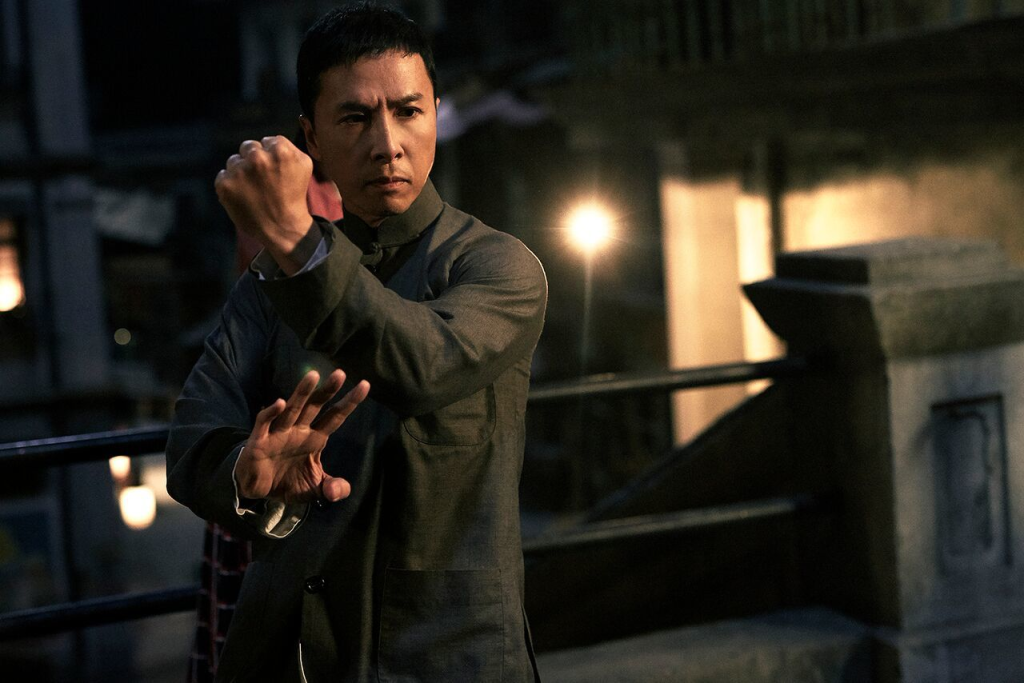
The Ip Man vs. Frank showdown is a three-minute masterpiece, pitting Wing Chun’s agility against brute force. Set to a ticking clock, the fight is a study in contrast—Ip Man’s controlled strikes versus Frank’s earth-shaking punches. Later, the elevator brawl, where Ip Man and Wing-sing fend off assassins, is a tense, claustrophobic thrill ride. The film’s climax—Ip Man vs. Cheung Tin-chi—is pure martial arts poetry, a one-on-one duel that tests skill, spirit, and philosophy. Each sequence is shot with clarity and dynamism by cinematographer Kenny Tse, ensuring every move lands with impact.
A Visual and Emotional Canvas: Cinematography and Score
Visually, Ip Man 3 captures the vibrancy of 1950s Hong Kong, from bustling streets to quiet domestic interiors. The film’s palette is warm and nostalgic, contrasting with the stark violence of its fights. Production design recreates the era with authenticity—think vintage cars, tailored suits, and weathered schoolhouses. The camera work enhances the storytelling, lingering on quiet moments between Ip Man and Wing-sing as much as it revels in the chaos of combat.
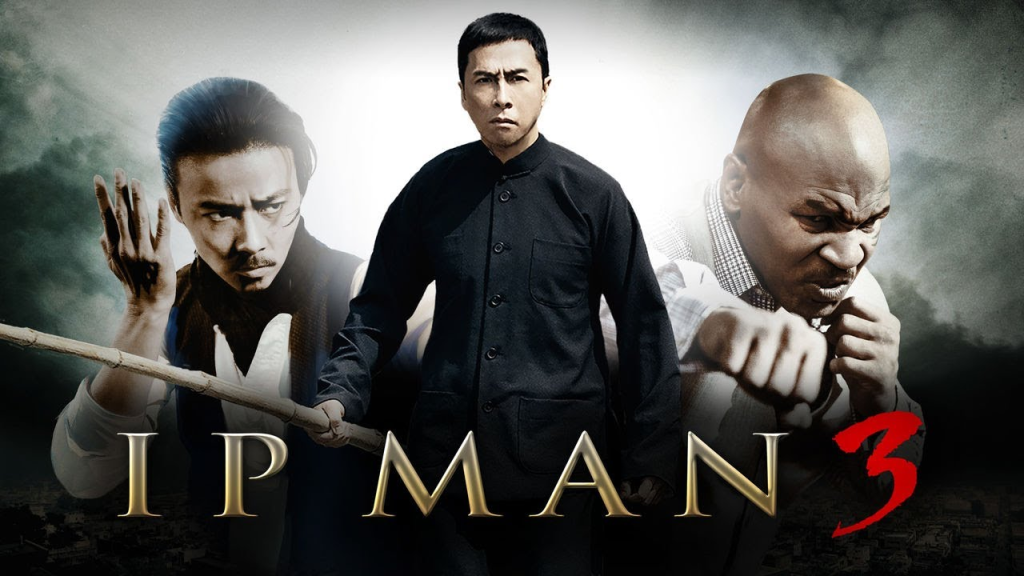
Kenji Kawai’s score is a triumph, weaving traditional Chinese instrumentation with soaring orchestral themes. The music swells during the action but softens into haunting melodies for the film’s tender scenes, amplifying its emotional resonance. It’s a soundtrack that lingers long after the credits roll.
Strengths and Shadows: What Hits and Misses
Ip Man 3 shines brightest in its balance of action and heart. The fight choreography is some of the best in the series, and the Ip Man-Wing-sing subplot adds a layer of depth rarely seen in martial arts films. Yen’s performance is a career highlight, proving he’s more than just a fighter—he’s an actor of remarkable range. The introduction of Cheung Tin-chi also sets up intriguing possibilities for the franchise’s future.
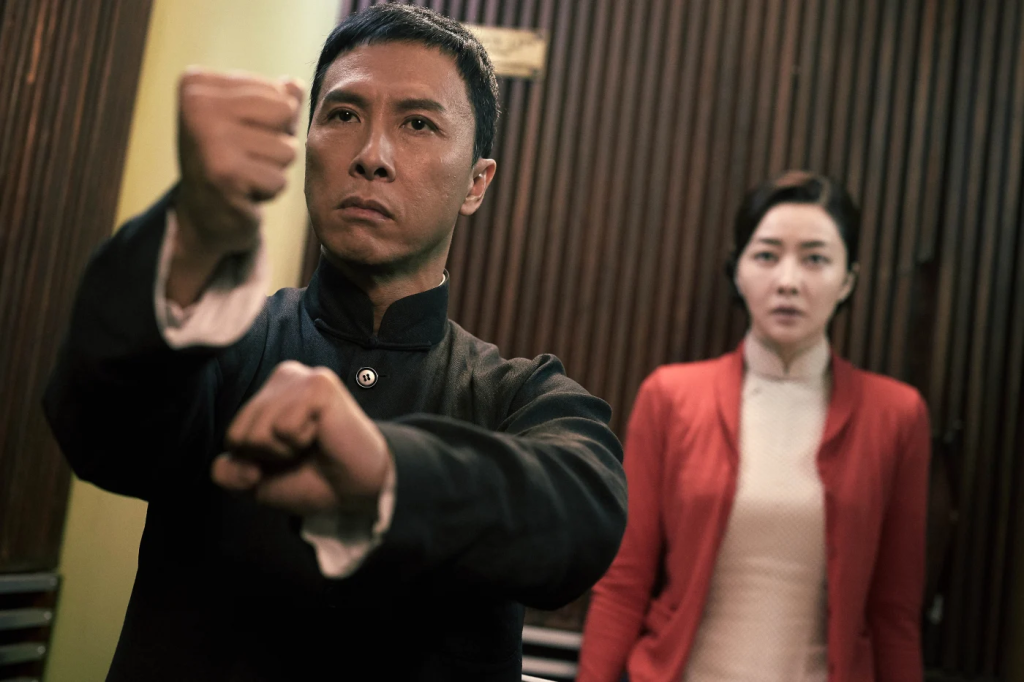
Yet, the film isn’t flawless. Some critics found the pacing uneven, with the gangster plot feeling secondary to the family drama. Frank’s character, while memorable, is underutilized, and his exit feels abrupt. The historical liberties—less prominent here than in earlier entries—may still irk purists. And while the film wraps up Ip Man’s arc satisfyingly, it lacks the epic scope of its predecessors, leaving some fans wanting more.
Legacy and Impact: A Master’s Mark
Upon release, Ip Man 3 was a box-office success, grossing over $156 million worldwide. It earned praise for its action and Yen’s performance, though some reviews noted a dip in narrative ambition. Over time, it’s gained a devoted following for its emotional weight and standout fights, cementing its place as a worthy chapter in the saga. The film’s success also spurred Master Z, expanding the Ip Man universe further.
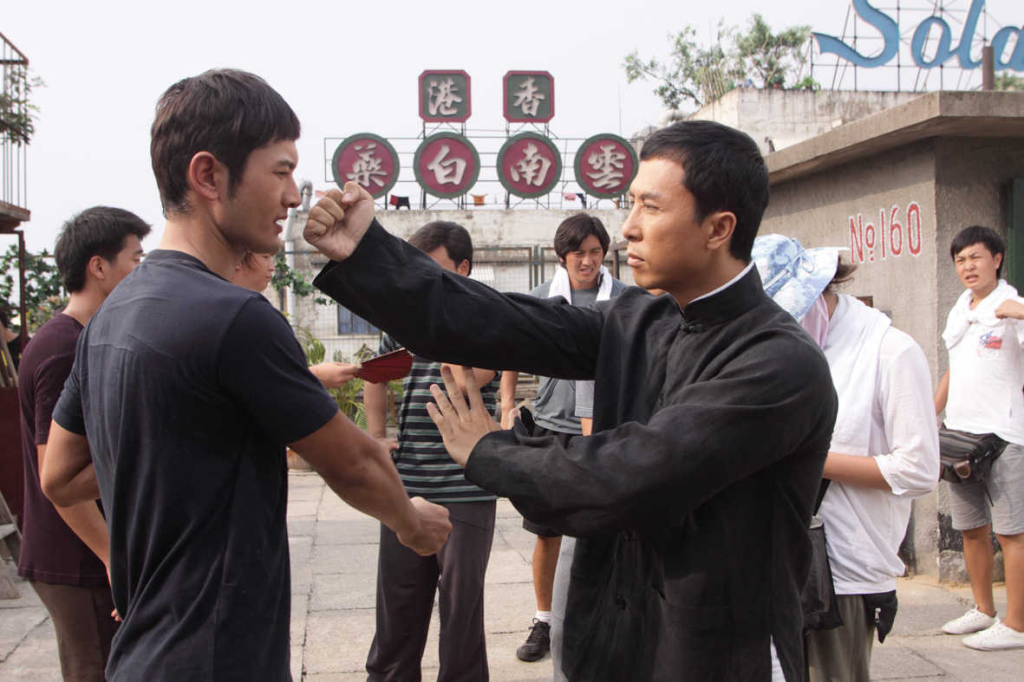
Final Verdict: A Knockout Worth Watching?
Ip Man 3 is a film that honors its roots while forging a new path. It’s a tribute to resilience—both in the ring and in life—and a showcase for Donnie Yen’s unparalleled talent. Whether you’re here for the fists or the feels, it delivers a knockout punch that lingers. It may not soar as high as the first Ip Man, but it’s a heartfelt, action-packed journey that proves the master still has plenty to teach.
